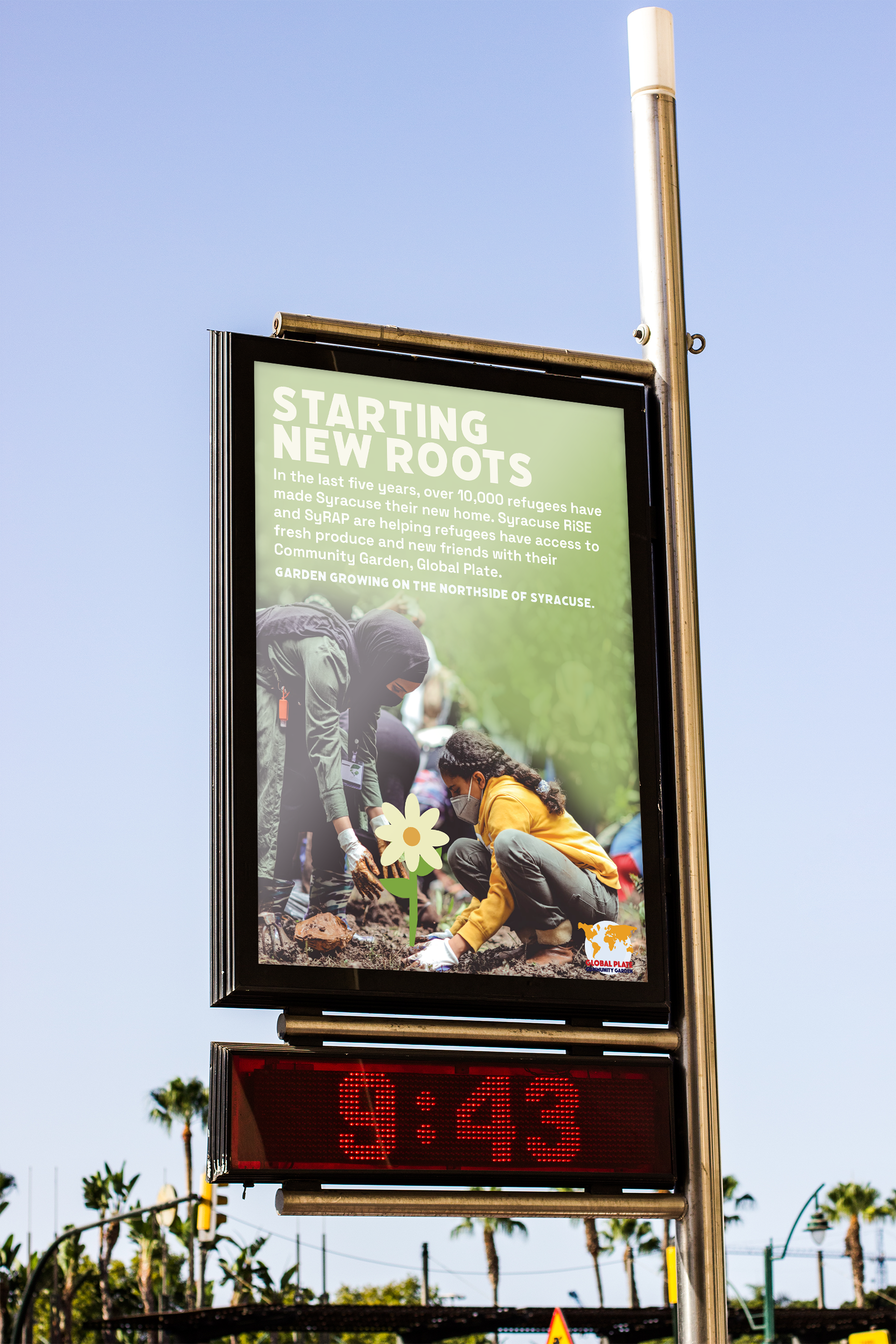SYRACUSE GROWS CASE STUDY
Women, migrants, and BIPOC communities are often the ones most affected by poverty and food insecurity. Community gardens can provide sustainable, fresh produce that is nutritious and readily available, and it can also provide a safe community for these groups.
The act of establishing a community garden is a response to the lack of availability of food, but it also has the purpose of building a sense of connection with people and nature. Through implementing and growing a system of community based gardens, this project would work to create a safe and comforting place for women, migrants, and BIPOC within the Syracuse area through the power of self grown food.
The question we would like to answer in this case study is “What strategies can community gardens use to fight food insecurity, build connections with people and nature, and create an inclusive space for women, migrants, and BIPOC communities?”
With this case study my group conducted interviews, wrote a project report, created a presentation, and made mock ups of what community gardens would look like if put into reality.












